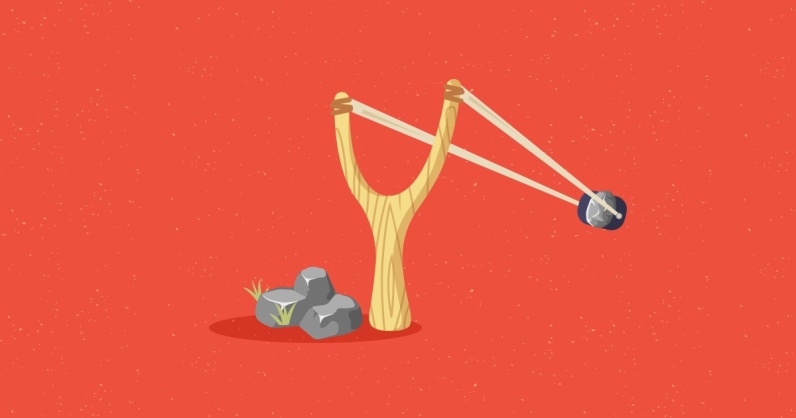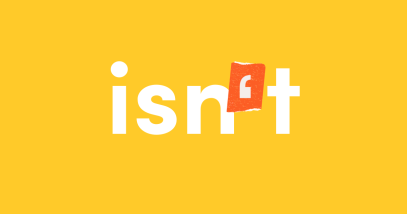The Slang Slingshot

Okay?
No matter where you’re from, you’ve probably used OK today: it’s likely the most widely recognized word in the world. But have you ever wondered where this word workhorse came from? OK finds its origins in the humorous slang of the nineteenth century. We can trace the word’s birth to a bit of jocular text in an 1839 Boston Morning Post article as a humorous initialism for the deliberate misspelling of “all correct” as “oll korrect.”1 OK probably would have been just another short-lived slang word if it hadn’t been the slogan for the 1840 presidential campaign of Martin Van Buren, who was given the nickname of Old Kinderhook because of his hometown of Kinderhook, New York. Old Kinderhook condensed handily to OK, which helped integrate OK into the bedrock of the English we speak today.
But why don’t all slang words end up like OK? Why do some slang words thrive and others fizzle out, like the eighties expression ozone ranger for someone who isn’t paying attention?2 This article traces the path some slang words take from transient, informal language to something firmly entrenched in popular speech. It will also take a look at the factors that can help or hurt a word’s path to linguistic greatness.
What Is Slang?
Before examining what makes slang last, we must first determine what slang is: we define it here (in line with sociolinguistic tradition) as an ever-changing set of colloquial words that speakers use to reinforce their social identity.2 In order to make the hearer react, a speaker uses slang to lower the register of the conversation—it makes speech more relaxed and less formal. Consider the following examples:
The prime minister is afraid to act. The prime minister is chickenshit. (cowardly)
While the first sentence is probably acceptable to use in a political speech or professional setting, the second sentence (given you agree with it!) makes the conversation conspiratorial.
Slang is very flexible and innovative. In fact, you’ve probably innovated slang yourself: many people will give a nickname to a teacher in school or create other inside jokes that get reused and adapted into the microdialect of a school or other social group. Slang terms often thrive in areas that border on the taboo; they are often insults, words for intoxication, sexual innuendos or scatological references. Very few are neutral; most of them are ameliorative or pejorative, meaning that they convey the speaker’s attitude—either positive or negative, respectively. The propensity humans have for creating insults, nicknames and inside jokes means that slang is one of the most innovative registers of language. A very small sampling of current slang words includes:
| lame | not good |
| bad | good or attractive |
| peeps | people or friends |
| fit | attractive (UK) |
| darty | daytime party |
A large number of slang terms are fleeting and, unlike the slang superstar okay, never make their way into dictionaries (see also How Do New Words Enter the Dictionary?).
Flexibility and Staying Power
Now that we’ve established what slang is, let’s take a look at the characteristics of slang that sticks. As an example, let’s consider the word dude. When it started cropping up in North American English in the 1880s, dude was a rare word that meant “a man extremely fastidious in dress and manner”. Eventually, dude became associated with Eastern city life and fashion, and was mostly used to disparage fashionable urban men not used to frontier life. By the 1920s, this meaning was enshrined in the expression dude ranch. In other communities, the notion of dressing sharply dominated and dude came to mean “a man who dresses stylishly,” a meaning preserved among Black speakers, who also generalized dude to “any male.”2
This generalization meant that dude could be used in more and more contexts. The linguists Ian Stewart and Jacob Eisenstein found that the range of linguistic contexts in which a slang word is found can predict its eventual entrenchment: the greater the range of contexts, the more likely the word is to become a permanent fixture in a language.3 They used a corpus of English data gathered from the online discussion forum Reddit between 2013 and 2016 to support these conclusions using the text around each slang word as the linguistic context. Essentially, the greater the number of contexts that a word was present in, the more likely the word would be used in a permanent way.
Let’s return to our dude example. While it had its narrow meaning, not many people used it. As the word’s meaning generalized from fancy man to just some guy, it could be used in more and more linguistic contexts, giving it a boost towards becoming a permanent fixture in the English language.
Dissemination
However, being used in many linguistic contexts does not ensure that a word will become entrenched. A word must also spread to many communities in order to become a permanent fixture in the English lexicon: it has to be widely disseminated. Ian Stewart and Jacob Eisenstein found that the larger the number of subreddits (specific discussion forums each dedicated to a given subject) a word appeared in, the greater a word’s chances of becoming entrenched. In the case of dude, its stereotypical use by Black entertainers in the 1970s and 1980s made its general meaning widely known. Then, thanks in large part to the cartoon character Bart Simpson, dude became even more general, able to refer to anyone.2 The social power bestowed by these influential actors encourages other speakers to integrate a new word into their usage.
Prestige and its role in linguistic change have been studied by sociolinguists since the field was born. There are two types: overt prestige and covert prestige. Overt prestige is the power that comes along with language considered to be refined such as the Queen’s English or long words. Newscasters and diplomats strive to use language with overt prestige. Covert prestige is very different; it is the power that comes with familiar language. Consider how someone speaking with an accent from your hometown makes you feel: it might not be the sort of thing you hear on the BBC, but it might charm you a little more than someone speaking with a standard accent might. Slang has covert prestige, which helps some words integrate into general usage. The entries with the label slang in Antidote’s dictionary still elicit much of the same response that they did when they were less widely used, but some slang terms eventually lose their informal connotations completely: crestfallen started out as a term used in cockfighting, for example, but it sets a polite and respectable tone today.
Conclusion
Not all slang words eventually integrate into the ‘general’ dialect. Many slang items stay within their speech communities, reinforcing the bonds people have to one another. For example, slay is still a trademark of the LGBTQ+ community, especially Black drag queens, and has been since at least the 1980s. Slang words often have rich etymologies and sophisticated meanings, though their use might be disparaged by the general public. Slang contributes to the living, breathing nature of English as a global language and should be respected for its contributions to the richness of our everyday vocabulary, even if some slang words remain proper to those who coined them.
-
"The Hilarious History of ‘OK’." Merriam-Webster Online, (2022). Retrieved July 20, 2022. ↩
-
Eble, Connie. Slang and Sociability Chapel Hill and London, The University of North Carolina Press, 1996. ↩ ↩ ↩
-
Stewart, Ian and Jacob Eisenstein. (2018). Making “fetch” happen: The influence of social and linguistic context on nonstandard word growth and decline. Proceedings of the 2018 Conference on Empirical Methods in Natural Language Processing,(1), pp. #4360–#4370. Retrieved July 20, 2022. ↩




